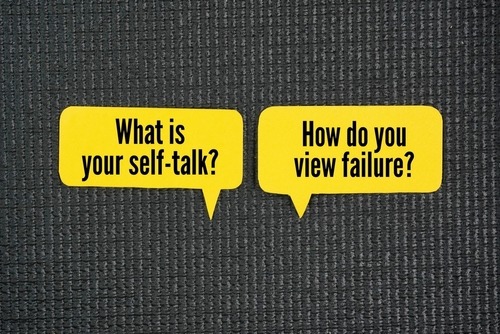Visit Innatefit1.com for exercise wear and equipment!!!
The Self-Doubt Assassin: Transform Your Inner Critic
Transform your self-doubt into confidence with practical mindset shifts and daily challenges. Learn proven steps to stop doubting yourself and discover confidence-building activities for anxious people that actually work.
SELF-HELPHEALTHY LIFESTYLECONFIDENCE BUILDINGPERSONAL DEVELOPMENTHEALTH
Joseph Battle
11/21/2025


Breaking Free From the Self-Doubt Prison: Your Mindset Revolution Starts Now
Self-doubt creeps into our lives like an unwelcome guest who overstays its welcome. You know that nagging voice in your head—the one that whispers you're not good enough, smart enough, or brave enough? Well, today marks the beginning of your liberation journey. Overcoming self-doubt requires more than positive thinking; it demands a fundamental shift in how you perceive yourself and your abilities.
The transformation you're seeking doesn't happen overnight, but with consistent effort and powerful mindset shifts, you'll experience remarkable changes in your confidence levels and overall well-being.
Moreover, countless individuals have walked this exact path before you and emerged victoriously on the other side. These weren't superhuman beings blessed with unshakeable confidence; they were ordinary people like you who decided to take action.
By implementing specific strategies and engaging in confidence-building activities for anxious people, you create neural pathways that rewire your brain's default thinking patterns. Subsequently, what once felt like an impossible mountain to climb transforms into manageable stepping stones toward your best self.
The Psychology Behind Self-Doubt: Understanding Your Inner Saboteur
Before you can effectively combat self-doubt, you must understand its origins. Self-doubt typically stems from past experiences, internalized criticism, or comparisons with others. Furthermore, social media amplifies these feelings by showcasing only highlight reels of people's lives, creating the illusion of perfection.
Your brain, functioning as a protective mechanism, generates doubts to keep you safe from potential failure or embarrassment. However, this protective mechanism often becomes counterproductive, limiting your potential and preventing you from taking necessary risks.
Additionally, research in cognitive psychology reveals that self-doubt reinforces itself through a vicious cycle. The more you doubt yourself, the less action you take, and the less action you take, the more evidence your mind gathers to "prove" your inadequacy.
Consequently, breaking this cycle requires intervention through deliberate mindset shifts. Understanding that your self-doubt is merely a habitual thought pattern—not a reflection of reality—empowers you to challenge it. Once you recognize that these doubts serve as lies your mind tells itself, you gain the power to rewrite the narrative.
Essential Steps to Stop Doubting Yourself: Your Action Plan
Now that you understand the mechanics of self-doubt, let's explore concrete steps to stop doubting yourself. First, practice radical self-awareness by noticing when doubt arises and examining what triggered it. Does doubt emerge when facing new challenges, social situations, or creative endeavors? By identifying patterns, you develop the ability to intervene early before doubt spirals into paralysis.
Secondly, challenge your doubt-filled thoughts with evidence. When your inner critic claims you'll fail, ask yourself: "What evidence supports this thought? What evidence contradicts it?" You'll discover that most doubts lack substantial backing.
Additionally, reframe failures as learning opportunities rather than reflections of your worth. Replace the thought "I failed because I'm incompetent" with "I encountered a challenge that taught me valuable lessons." This subtle linguistic shift transforms your relationship with setbacks.
Furthermore, establish a daily practice of affirmations tailored to your specific doubts. Rather than generic statements like "I'm awesome," create specific affirmations addressing your particular struggles. For instance, if you doubt your public speaking abilities, repeat: "I speak clearly, confidently, and with authentic passion." Consistency matters tremendously here; speak these affirmations aloud while looking yourself in the eye. Research demonstrates that this practice strengthens neural pathways associated with confidence and self-belief.
Finally, surround yourself with people who believe in you and challenge negative self-talk when you hear it. Your environment shapes your mindset; therefore, deliberately choose communities that uplift rather than diminish you. Sometimes, removing yourself from toxic relationships or limiting time spent with critical individuals becomes necessary for your mental health and growth.
Confidence-Building Activities for Anxious People: Transform Fear Into Fuel
Anxiety and self-doubt travel together like unwanted dance partners, yet confidence-building activities for anxious people break this unhealthy partnership. Start with micro-challenges—small, manageable tasks that stretch your comfort zone slightly without overwhelming you. If social anxiety plagues you, perhaps your micro-challenge involves speaking one sentence in a meeting. Gradually increase the difficulty as your confidence grows.
Moreover, creative pursuits are powerful confidence builders because they celebrate effort over perfection. Whether you paint, write, cook, or dance, engaging in creative endeavors reminds you that imperfect action beats perfect inaction. Additionally, physical exercise produces endorphins that naturally combat anxiety while simultaneously building confidence through visible progress. When you build strength—whether physical, mental, or emotional—you naturally gain self-assurance.
Volunteer work offers another phenomenal confidence-building opportunity. By contributing your unique skills to help others, you gain tangible evidence of your value and competence. Furthermore, assisting others shifts your focus from self-doubt to service, naturally alleviating anxiety. Consider joining groups aligned with your interests, whether book clubs, sports leagues, or hobby communities. Social engagement within supportive environments gradually desensitizes you to social anxiety while building authentic connections.
Daily Challenges: The 30-Day Self-Doubt Destruction Program
To solidify these concepts, implement a structured 30-day challenge that systematically dismantles self-doubt. During week one, focus on awareness and reframing by journaling daily about doubt triggers and challenging them with evidence. Week two emphasizes affirmations and positive self-talk—dedicate fifteen minutes daily to speaking confidence-building statements while visualizing yourself succeeding in situations that typically trigger doubt.
Week three introduces you to micro-challenges: intentionally doing something daily that makes you slightly uncomfortable. Ask a question in a meeting, introduce yourself to a stranger, wear an outfit that makes you feel confident, or initiate a conversation with someone new. Meanwhile, week four combines all previous elements while adding gratitude practice; each evening, write three things you did well that day, regardless of how small they seem.
Subsequently, completing this 30-day challenge creates momentum and builds evidence that you're capable of more than doubt suggests. Many participants report that by day thirty, their inner dialogue has fundamentally shifted toward encouragement rather than criticism. Moreover, the challenge format provides structure and accountability, making consistency easier to maintain.
Your Unstoppable Future: Maintaining Long-Term Confidence
As you move beyond these initial challenges, maintain your momentum by continuing to implement successful strategies. Think of confidence-building as a lifelong practice rather than a destination you reach and abandon. Periodically revisit your wins and victories, no matter how small they seem, to remind yourself of your capability and resilience.
Additionally, understand that setbacks will occur—this isn't failure; it's simply part of being human. Respond to setbacks with self-compassion rather than harsh self-criticism. Ask yourself what you'd tell a dear friend facing this situation, then offer yourself that same kindness. Most importantly, recognize that overcoming self-doubt is an ongoing process of choosing belief in yourself, moment by moment, day by day, until new neural pathways solidify into unshakeable confidence.




